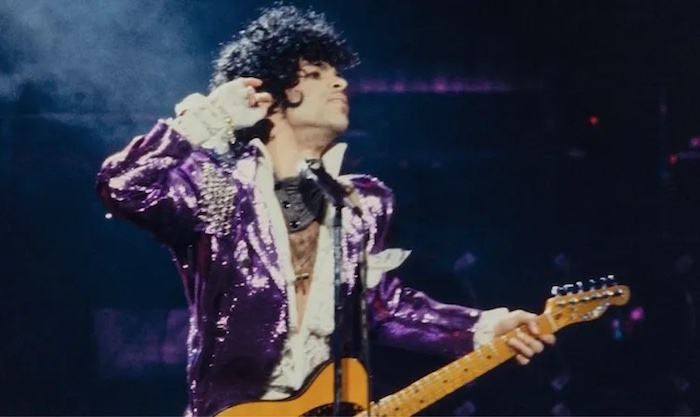
The Japanese distributor of this 2021, 68-minute documentary obviously picked it up to release it theatrically in Japan on Prince’s 66th birthday, which is June 7. You’d be hard pressed to find much information about it on the internet, despite the high caliber of the talking-head celebrities (Chaka Khan, Macy Gray, Billy Gibbons, Orianthi…Dennis Quaid?) recruited to praise the late purple one, but there’s a pretty good indication right up front of why it’s received so little notice. The opening title card reveals that the estate of Prince Rogers Nelson had no involvement with the doc, which means no actual Prince music is included, except for a brief bit of a concert he did in Montreaux. The directors, Daniel D’Or and Eric Wiegand, do the best they can despite this very significant limitation, and their aim is mainly to show how Prince was shaped by his upbringing in the musical environment of Minneapolis.
Chuck D is again on hand to explicate the early 20th century African-American migration from the fields of the South to the factories of the Midwest to illustrate how Minneapolis acquired a vital Black community, and various locals with long historical memories then provide first- or second-hand anecdotes about how that community produced its own native musical culture through a unique education program called The Way, where a pre-teen Prince learned how to play multiple instruments and started working professionally while still in high school, sometimes practicing up to 16 hours a day. And while his volatile relationship with his father, which got the full dramatic treatment in Purple Rain, is covered, the directors avoid the psychological analysis that usually informs these kinds of movies about dead artists. Much is made of Prince’s withdrawn private behavior and how it contrasted starkly with his outrageous and sexually aggressive stage image, but the point is always that his workaholic temperament served his self-identity as a performer. If anything, his over-achiever status as a musician—he was as dominating a bandleader as James Brown, as prolific a creator as Stevie Wonder—was cultivated to present a persona to the world as a faultless entertainer. Consequently, the movie dwells on his accomplishments and how his fans reacted to them while downplaying the disappointments that such a regimen was bound to engender, such as his problems with Warner Bros. and his doctrinaire rejection of hip-hop and EDM. And though everyone mourns his death no one mentions how he died and what led to it.
That said, it would be unfair to call Mr. Nelson a hagiography, if only because it feels both incomplete and well-made. Prince really deserves something more thematically oriented, like the massive Moonage Daydream, which honored David Bowie’s complications with both awe and discernment. Prince wore his insecurities on his brocaded sleeves while pushing a kind of supreme artistic confidence that few great artists can boast of. It’s a contradiction that won’t be properly explained on film until his estate finally loosens up.
Now playing in Tokyo at Shinjuku Cinema Qualite (03-3352-5645).
Mr. Nelson on the North Side home page in Japanese
photo (c) Prince Tribute Productions Inc.
